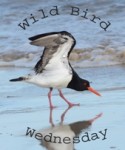Posted by: Ken @ 3:29 pm
We had high winds and driving rain overnight, as several thunderstorms passed through. I was concerned about the safety of the herons nesting in the rookery near our South Florida home, particularly in the trees defoliated by herbicide treatments that exposed their nests to the elements.
To keep track of the nests we have given them numbers, based upon their location relative to the row of ornamental Live Oaks planted on the bank of the canal opposite the nests. We also designate whether or not the nest trees have been treated by herbicides (HT or non-HT). Nest #4 HT is occupied by the first pair of Green Herons, and the next 5 are those of Yellow-crowned Night-Herons. Nest 9 HT and 10 non-HT respectively have nestlings and eggs. Nest 9.5 non-HT is newly constructed and we have not yet seen any eggs. Nest 19 HT and 20 HT contain eggs.
Nest 22.5 non-HT (we call it the culvert nest because it is opposite a culvert) belongs to Green Herons that now have eggs. The male of the pair that occupy the culvert nest was very likely the same one that became entangled in fishing line and was rescued by Steve Siegel (see earlier post). It spent 3 days in rehabilitation and rejoined his mate.
This morning, in between thunderstorms, I checked on the welfare of the herons. All the nests were intact. The chicks in the night-heron nest #9 HT were 2-4 days old.
The next wave of storms was approaching from over the Everglades.
Green Herons have a 19-21 day incubation period. We first saw eggs in the Green Heron nest on March 25, when the pair exchanged incubation duties. This was probably within a few days of when they were laid, so we expected them to hatch around mid-April. The young may leave the nest as early as 16 days of age, but are weak fliers and depend upon their parents until they are 30–35 days old.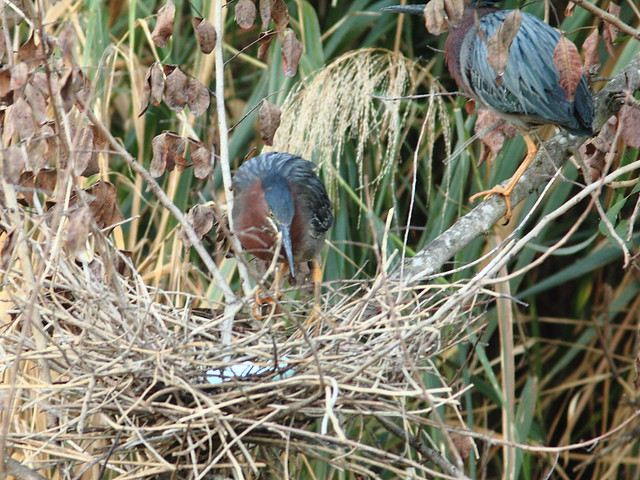
We again saw the blue eggs on March 27.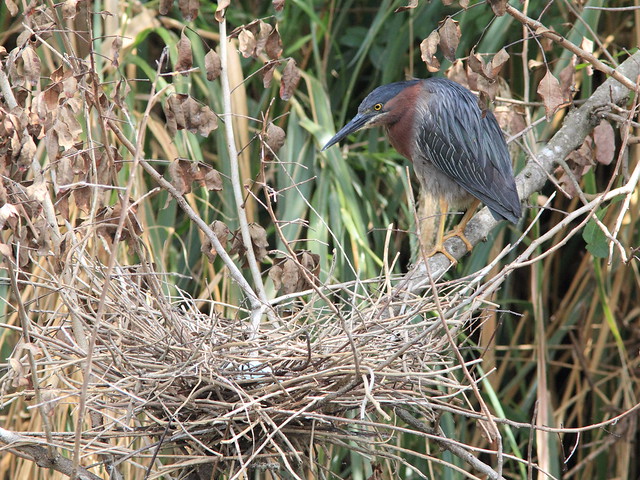
The female was still incubating on April 4…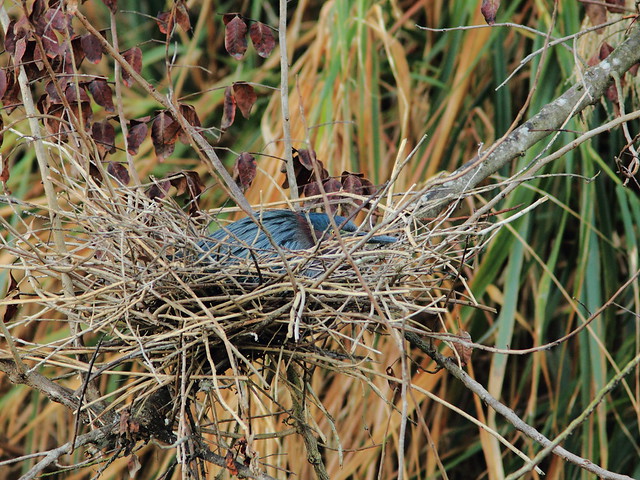
…and on April 10, when an adult was sitting very low on the nest.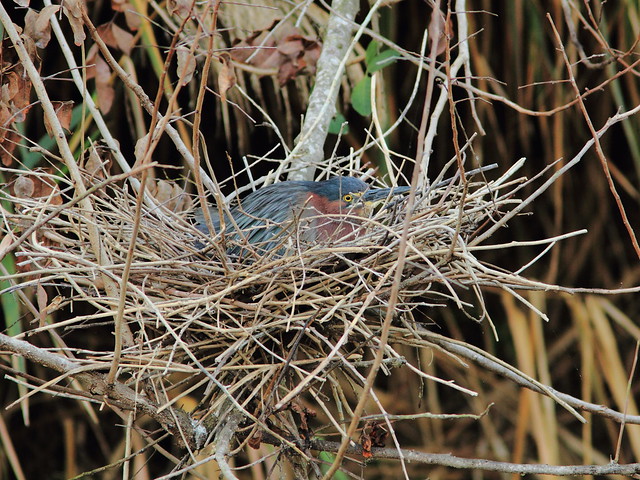
On April 13 the parent was possibly brooding one or more nestlings, as it was sitting higher on the nest.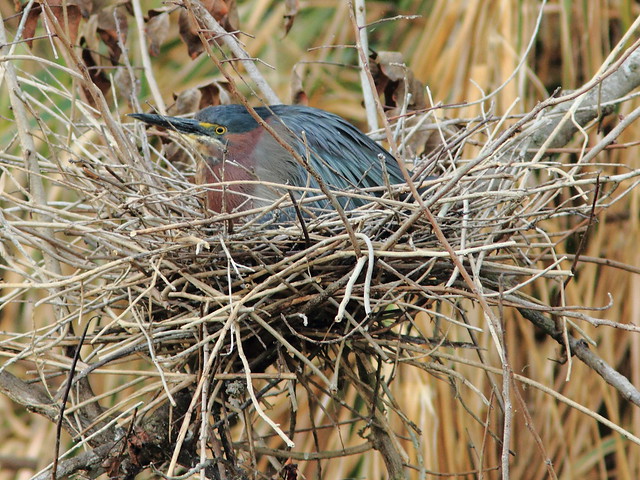
We got our first look at the nestlings on April 15.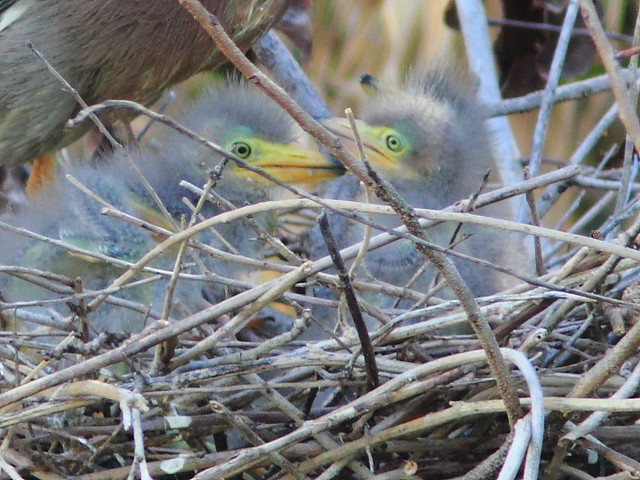
On April 18 we saw only three chicks.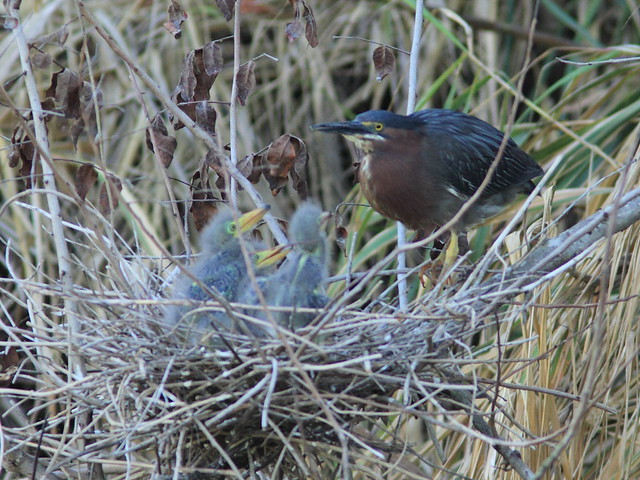
I made a video of the nest on April 19 (if not visible just below, click to view it here) and counted four nestlings.
|
Green Heron nestlings 7-9 days |
The smallest one must have hatched out a few days later than the others, as it was still downy. Note its soft gray coat and lack of pin feathers.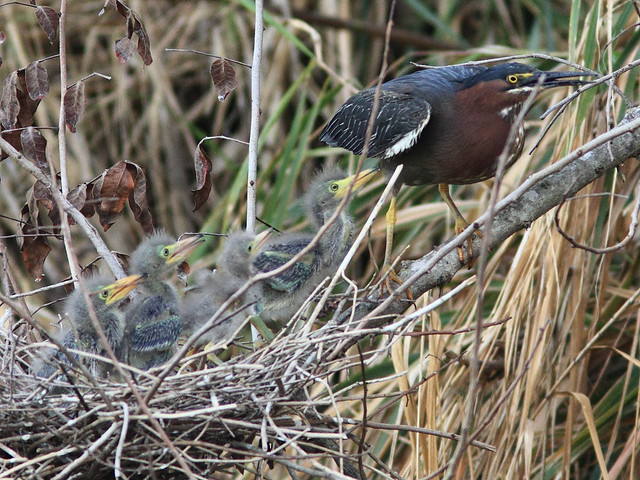
This morning, the smallest of the chicks was missing, probably blown off the nest, which is very flimsy and sways even in a slight breeze. When I arrived they were alert and seemed to be waiting to be fed, looking in every direction for a parent.
The Green Herons treated my neighbor Scott and me to a great show. I had watched them for about an hour as they waited to be fed. Only minutes after Scott joined me, the female parent flew in and quickly fed the chicks on the nest. She then walked to roost on a limb that led up and to the right of the nest. The chicks began to climb up towards her.
Suddenly the male flew in and landed nearer the nest. He was immediately mobbed, first by the largest of the three nestlings.
The largest chick fought violently with the adult, attempting to grasp his bill. They struggled so much that I expected the chick to fall off the branch into the water.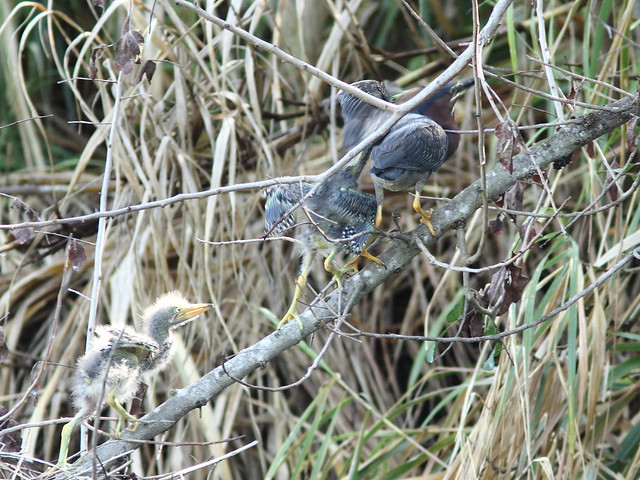
The parent was surrounded by hungry little herons. They flapped and tussled.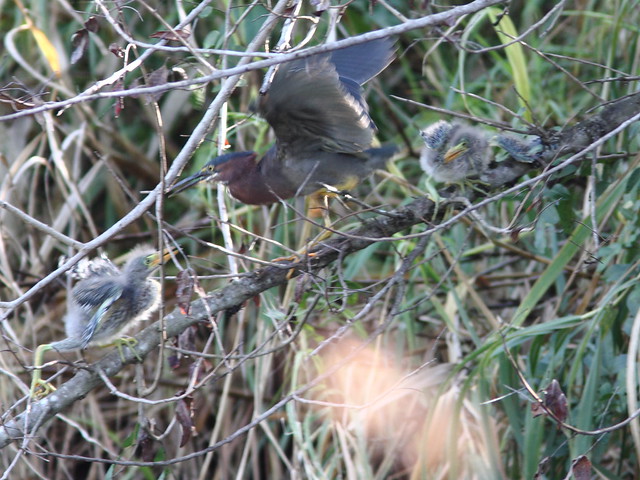
The male herded the brood back into the nest, where he fed them in a more orderly manner.
Here is the culvert nest with the female sitting on the eggs.
Successfully rehabilitated, the male parent foraged for insects in the grass just opposite the nest.
For more photos and videos, visit my FLICKR photo pages at: http://www.flickr.com/photos/rosyfinch/







